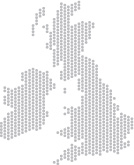
Norcott Design First Article Inspection Machine
Getting the correct components in the right place is crucial for SMT PCB assembly and the latest IDS USB 3.0 camera technology is being used by contract PCB assembler, Norcott Technologies, to help automate the PCB inspection process.
High resolution, high frame rates, a versatile software interface and future proof connectivity through USB 3.0 were all reasons why Norcott chose USB 3.0 cameras from IDS for its new, custom-built First Article Inspection systems.
Application
First article inspection (FAI) is one of the most important steps in surface mount technology (SMT) PCB assembly process, since it allows a final check that the correct component is in the correct position on the board before the board goes for soldering. It ensures that the expected output conforms to the customer’s qualified process during normal production. Ted Reilly, Senior Business Process Developer at Norcott explains: “FAI is essentially a manual inspection process, but with boards containing hundreds of components, locating every component by eye and comparing it to the customer’s Bill of Materials (BOM) is extremely time consuming, tedious and prone to error.
Automating this process using vision technology allows us to check the presence, positioning and identity of SMT components by directly referencing the BOM and makes a huge difference, both in terms of time saving and accuracy. It is an essential requirement in our SMT Setup & Quality Department and as the check is done before reflow, the inspection is non-destructive thereby increasing the departmental efficiency and 1st time pass rate.”
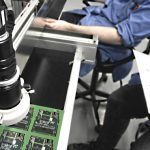
- Single Sided SMT
- Double Sided SMT
- Single Sided SMT + PTH
- Double Sided SMT + PTH
- Double Sided SMT + Double Sided PTH
Norcott developed their first custom-built FAI XY vision inspection system around eight years ago, but with the hardware and software used becoming obsolete, a new system was required. For this new system, Norcott chose a high resolution 5 Megapixel IDS UI-3580CP USB 3.0 colour camera, equipped with high quality optics. This is mounted on a motorised XY platform to allow 1st off inspections to be performed under high magnification. The system uses a wpf.net software developed in-house which provides integration into Norcott’s extensive component database and repository. The versatile UI-3580CP camera links into Norcott’s bespoke wpf.net application software using the uEye API, which is part of the IDS Software Development Kit (SDK) supplied with all IDS cameras. PCBs for inspection are populated with the components held in the correct location on the board using solder paste.
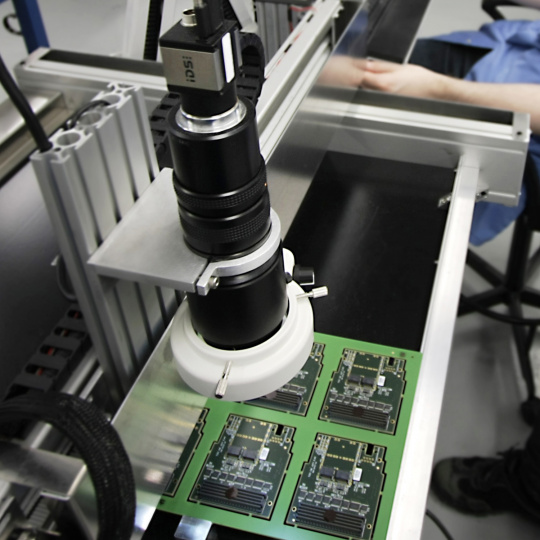
A number of features are built into the system to allow operators to quickly load customer BOMs which contain the list of parts or components used and their placement on the printed circuit board as specified by the customer. As each component is called up on the BOM, the camera is automatically driven to the correct location for inspection. There is no set-up required – the system is ready for inspection within 2 minutes of start up. The camera system produces a 50 mm square field of view which shows the SMT component, PCB and solder paste at a resolution capable of imaging even 0201 components. A zoom function is provided if higher magnification is required.
The bespoke software facilitates a myriad of information to be displayed in real-time so each component can be checked visually for presence, positioning, orientation, part-marking, polarity and many other parameters.
Boards that pass the inspection then progress for soldering. If there is any discrepancy between the board and the BOM, the software can save a high-resolution copy of the component image to a shared folder for Norcott’s team of engineers to validate.
Camera
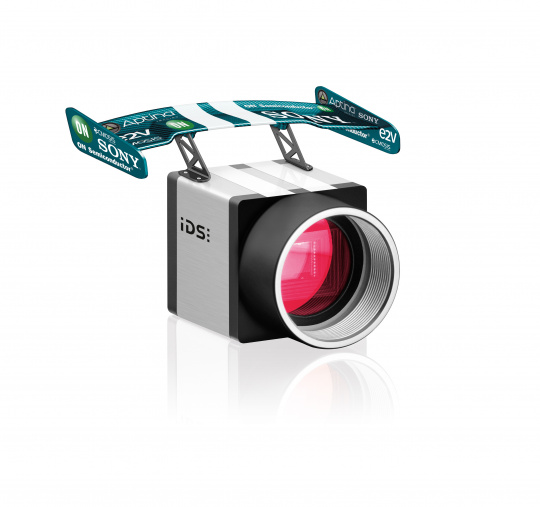 The new developed generation of the USB 3 uEye CP. The compact UI-3580CP Rev. 2 USB 3.0 camera measures just 29 x 29 x 29 mm with an exceptionally robust yet lightweight magnesium housing. It features the 4.92 megapixel MT9P006STC colour CMOS sensor from ON Semiconductor. ON Semiconductor is one of the largest CMOS sensor manufacturers worldwide. This half inch sensor delivers a resolution of 2560 x 1920 pixels as well as providing rolling and global start shutter features, which means it can be used for recording moving as well as static images.
The new developed generation of the USB 3 uEye CP. The compact UI-3580CP Rev. 2 USB 3.0 camera measures just 29 x 29 x 29 mm with an exceptionally robust yet lightweight magnesium housing. It features the 4.92 megapixel MT9P006STC colour CMOS sensor from ON Semiconductor. ON Semiconductor is one of the largest CMOS sensor manufacturers worldwide. This half inch sensor delivers a resolution of 2560 x 1920 pixels as well as providing rolling and global start shutter features, which means it can be used for recording moving as well as static images.Thanks to the innovative A-Pix™ pixel technology, the sensor is extremely sensitive to light, which makes the camera particularly suitable for applications that require maximum precision in colour rendering and crystal clear image quality. The A-Pix™ pixel technology is based on the gathering of light by a light guide, which directs the gathered incident light from the colour filter to the surface of the photo diode. Structure and process improvements in pixel technology have increased the sensitivity of the sensor in the red and green range in particular by up to 30 % compared to the previous version of the sensor. The sharp, low noise images produced by these sensors make them ideal for industrial inspection applications. By using the AOI (area of interest) feature, imaging can be carried out at Full HD resolution. Greater contrast can be achieved using the binning capability and fast preview images can be obtained by subsampling the sensor. An integrated 128 MB image buffer makes the camera well suited for use in multi-camera applications, and the camera also benefits from a standby mode, which reduces the power consumption in sleep mode to a minimum.
Software
The UI-3580CP camera, like all IDS cameras, is supplied with the versatile IDS SDK. Featuring drivers and interfaces (DirectShow, TWAIN, ActiveX and GenICam), this SDK is identical across all of the IDS camera models – regardless of whether they have a USB 2.0, USB 3.0 or GigE interface – and provides support for the most popular imaging processing libraries, such as Common Vision Blox, HALCON, LabVIEW, NeuroCheck, and many more. As well as supporting Windows 7, 8, and 10, the latest release of the SDK is available for Linux and Linux Embedded. Since the SDK is identical for all cameras in the IDS range, there is the potential to seamlessly switch to another model should future requirements change.
USB 3.0
The IDS USB 3.0 camera range is hugely popular with both OEMs and end users such as Norcott. It features a wide range of cameras, from board-level versions to fully housed versions. All equipped with the latest CMOS sensors, they are available with a wide choice of resolutions and frame rates to suit the particular application. The USB 3 interface is highly popular thanks to its “plug’n’play” connectivity and fast data transmission rates of up to 420 MByte/s. In addition, the IDS SDK provides the flexibility to interface to a wide variety of systems as well as offering a number of control functions that can significantly improve image quality in challenging imaging conditions.
Many of these factors were influential in Norcott’s decision to purchase cameras from IDS. Ted Reilly continues: “Obviously we needed a camera that would provide the image quality required for our inspection, but we also wanted one that was effectively future-proofed, which is why we chose the standard USB 3.0 interface.” “The UI-3580CP camera was ideal for the application,” he continued. “The API allowed us to interface directly to our custom software, and it was available at a very competitive price. We also found IDS to be really helpful and co-operative during the evaluation stages and this has continued since we purchased the camera with reliable technical support & resources.“
A second First Article Inspection system is now under construction at Norcott, again with the UI-3580CP being the camera of choice, and will be commissioned together with a new SMT production line.
USB 3 uEye CP – Incredibly fast, incredibly reliable, incredible sensors
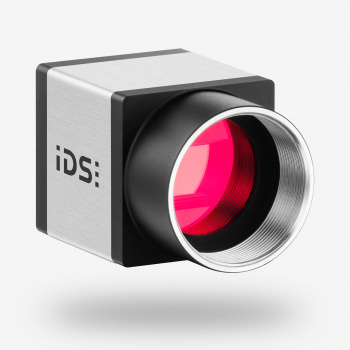
Framerate: 15.2 fps
Applications: Machine vision, Microscopy, Embedded systems
Norcott occupies a purpose built engineering centre in the heart of Cheshire, UK. Originally set up to provide electronic design services to electronics and original equipment manufacturers, the company has expanded to offer a ‘full service’ that also encompasses prototype and production assembly. A wide range of assembly services from engineering prototypes through to regular production volume is available including wiring, complete box build and test. Three independent surface mount lines provide the capability to assemble PCBs with fine pitch QFP and µBGA technologies. www.norcott.co.uk

